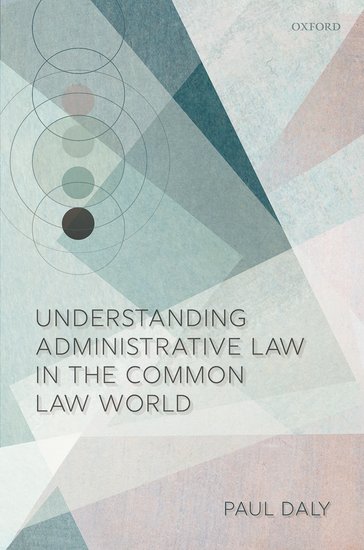Reminder: Understanding Administrative Law in the Common Law World with Mary Liston & Jacob Weinrib: January 26, 11.30 EST

I am looking forward to discussing (and defending!) Understanding Administrative Law in the Common Law World on Wednesday, with Professors Liston and Weinrib. Register here.
Professor Liston’s work on the rule of law is required reading for Canadian law students and her vast scholarship on the foundational principles of administrative law comes highly recommended.
Professor Weinrib is a public law theorist of the highest calibre. I particularly recommend his article in the Modern Law Review, “Maitland’s Challenge for Administrative Legal Theory“. Here is the abstract:
This paper challenges the familiar strategy for theorizing administrative law. Theories of administrative law typically take the existence of administrative bodies for granted, and then ask, all things considered, what moral aim they should serve. The resulting approaches are committed to varying moral aims ranging from the rule of law to efficiency, but converge on the shared idea that the purpose of administrative law is to promote aims that could, in principle, be realized apart from it. As a critical matter, this paper argues that the familiar strategy opens the door to a devastating skeptical challenge. Because the benefits that administrative law brings can, in principle, be realized without it, administrative law may be rightly abandoned. As a constructive matter, this paper defends the idea that administrative law has a moral purpose that is inseparable from it: administrative law constitutes the exclusive means of realizing what positive rights demand.
Professor Weinrib makes the case for seeing the administrative state as a necessary means of giving effect to positive rights:
a positive right entitles its bearer to the establishment, implementation, and ongoing refinement of an administrative regime directed to the right’s satisfaction. The satisfaction of positive rights is impossible apart from public legislation and administration. Without legislation, positive rights would remain indeterminate. Without administration, positive rights would remain unfulfilled.
I have until Wednesday to figure out a response…
Chapter 1 of my book is available for free on SSRN:
This book has three goals: to enhance understanding of administrative law; to guide future development of the law; and to justify the core features of the contemporary law of judicial review of administrative action. Around the common law world, the law of judicial review of administrative action has changed dramatically in recent decades, accelerating a centuries-long process of incremental evolution. This book offers a fresh framework for understanding the core features of contemporary administrative law. Through comparative analysis of case law from Australia, Canada, England, Ireland and New Zealand, I develop an interpretive approach by reference to four values: individual self-realisation, good administration, electoral legitimacy and decisional autonomy. The interaction of this plurality of values explains the structure of the vast field of judicial review of administrative action: institutional structures, procedural fairness, substantive review, remedies, restrictions on remedies and the scope of judicial review, everything from the rule against bias to jurisdictional error to the application of judicial review principles to non-statutory bodies. Addressing this wide array of subjects in detail, I demonstrate how this pluralist approach, with the values being employed in a complementary and balanced fashion, can enhance academics’, students’, practitioners’ and judges’ understanding of administrative law. Furthermore, this pluralist approach is capable of guiding the future development of the law of judicial review of administrative action, a point illustrated by a careful analysis of the unsettled doctrinal area of legitimate expectation. I close by arguing that his values-based, pluralist framework supports the legitimacy of contemporary administrative law which although sometimes called into question in fact facilitates the flourishing of individuals, of public administration and of the liberal democratic system.
This chapter introduces the means of achieving the three objectives of this book: to enhance the understanding, guide the future development and justify the core features of contemporary administrative law. First, the historical backdrop to the development, in recent decades, of general principles of administrative law is explained. Second, the four values which provide structure to the law of judicial review of administrative action are introduced: individual self-realisation, good administration, electoral legitimacy and decisional autonomy. Third, an explanation on how these values are used to interpret the core features of contemporary administrative law is given. Fourth, the chapter addresses the book’s comparative approach, justifying the choice of Australia, Canada, England, Ireland and New Zealand as its focus. Fifth, this chapter situates the book’s interpretivist approach, which relies on a plurality of values, in the existing scholarly literature on administrative law, noting that unlike others this book does not argue that there is one single meta-value, meta-principle or meta-concept around which the subject revolves. Lastly, this chapter provides an overview of the rest of this book.
Download it here.
You can register for Wednesday’s event, which will be moderated by Justice Georgina Jackson of the Saskatchewan Court of Appeal here. Many thanks to the uOttawa Centre for Public Law for its support throughout this series of launch events.
This content has been updated on January 27, 2022 at 14:24.